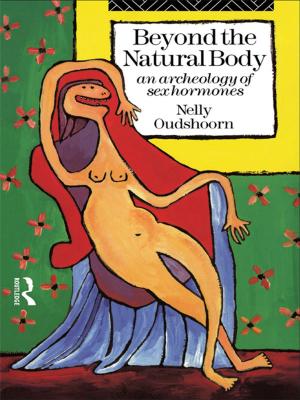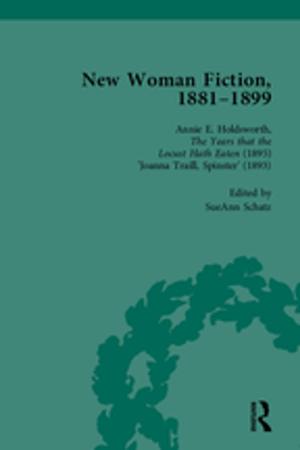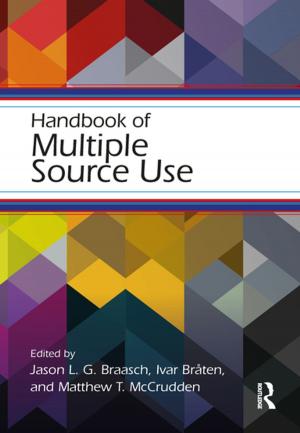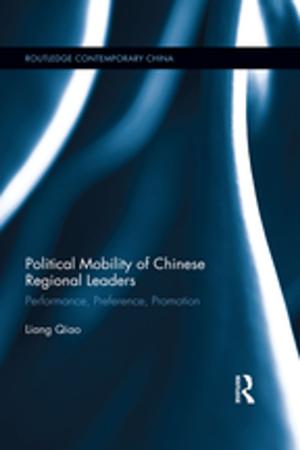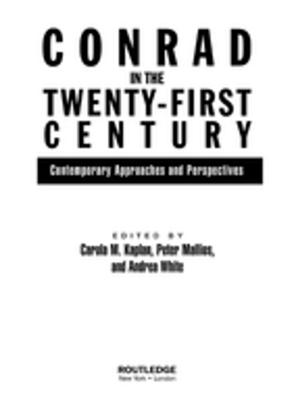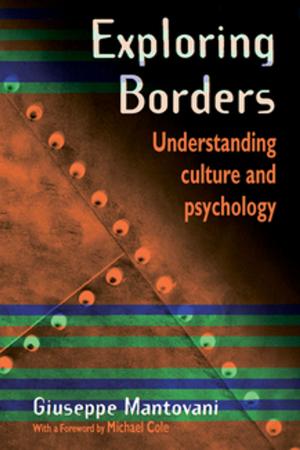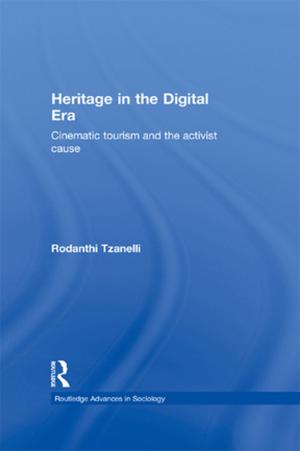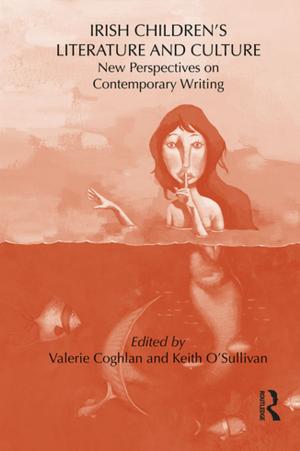Foundations for Tracing Intuition
Challenges and Methods
Nonfiction, Health & Well Being, Psychology, Cognitive Psychology| Author: | ISBN: | 9781135181451 | |
| Publisher: | Taylor and Francis | Publication: | December 15, 2009 |
| Imprint: | Psychology Press | Language: | English |
| Author: | |
| ISBN: | 9781135181451 |
| Publisher: | Taylor and Francis |
| Publication: | December 15, 2009 |
| Imprint: | Psychology Press |
| Language: | English |
The study of intuition and its relation to thoughtful reasoning is a burgeoning research topic in psychology and beyond. While the area has the potential to radically transform our conception of the mind and decision making, the procedures used for establishing empirical conclusions have often been vaguely formulated and obscure. This book fills a gap in the field by providing a range of methods for exploring intuition experimentally and thereby enhancing the collection of new data.
The book begins by summarizing current challenges in the study of intuition and gives a new foundation for intuition research. Going beyond classical dual-process models, a new scheme is introduced to classify the different types of processes usually collected under the label of intuition. These new classifications range from learning approaches to complex cue integration models.
The book then goes on to describe the wide variety of behavioural methods available to investigate these processes, including information search tracing, think aloud protocols, maximum likelihood methods, eye-tracking, and physiological and non-physiological measures of affective responses. It also discusses paradigms to investigate implicit associations and causal intuitions, video-based approaches to expert research, methods to induce specific decision modes as well as questionnaires to assess individual preferences for intuition or deliberation.
By uniquely providing the basis for exploring intuition by introducing the different methods and their applications in a step-by-step manner, this text is an invaluable reference for individual research projects. It is also very useful as a course book for advanced decision making courses, and could inspire experimental explorations of intuition in psychology, behavioural economics, empirical legal studies and clinical decision making.
The study of intuition and its relation to thoughtful reasoning is a burgeoning research topic in psychology and beyond. While the area has the potential to radically transform our conception of the mind and decision making, the procedures used for establishing empirical conclusions have often been vaguely formulated and obscure. This book fills a gap in the field by providing a range of methods for exploring intuition experimentally and thereby enhancing the collection of new data.
The book begins by summarizing current challenges in the study of intuition and gives a new foundation for intuition research. Going beyond classical dual-process models, a new scheme is introduced to classify the different types of processes usually collected under the label of intuition. These new classifications range from learning approaches to complex cue integration models.
The book then goes on to describe the wide variety of behavioural methods available to investigate these processes, including information search tracing, think aloud protocols, maximum likelihood methods, eye-tracking, and physiological and non-physiological measures of affective responses. It also discusses paradigms to investigate implicit associations and causal intuitions, video-based approaches to expert research, methods to induce specific decision modes as well as questionnaires to assess individual preferences for intuition or deliberation.
By uniquely providing the basis for exploring intuition by introducing the different methods and their applications in a step-by-step manner, this text is an invaluable reference for individual research projects. It is also very useful as a course book for advanced decision making courses, and could inspire experimental explorations of intuition in psychology, behavioural economics, empirical legal studies and clinical decision making.

